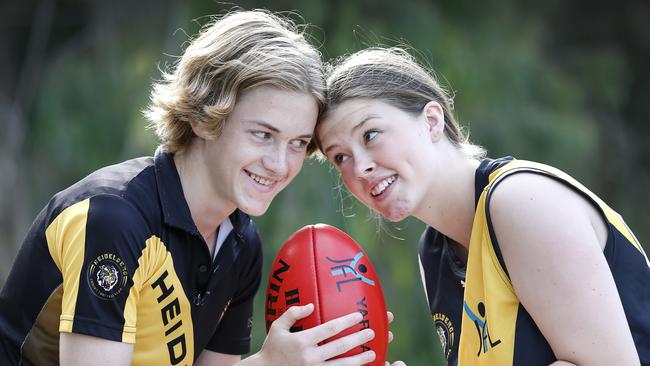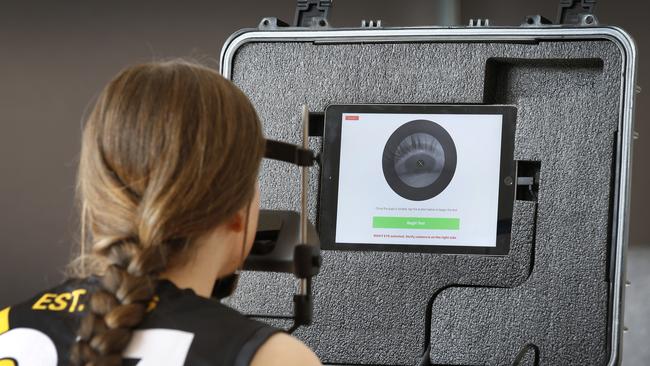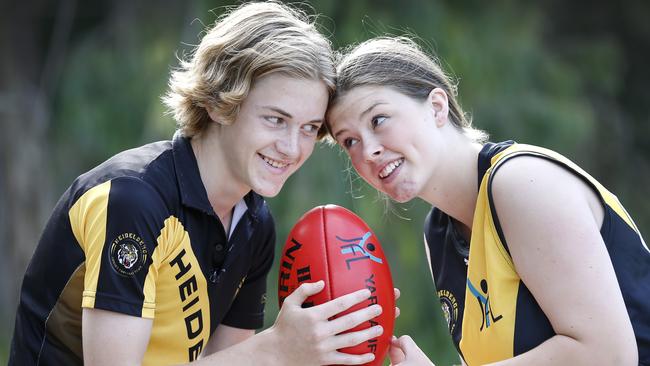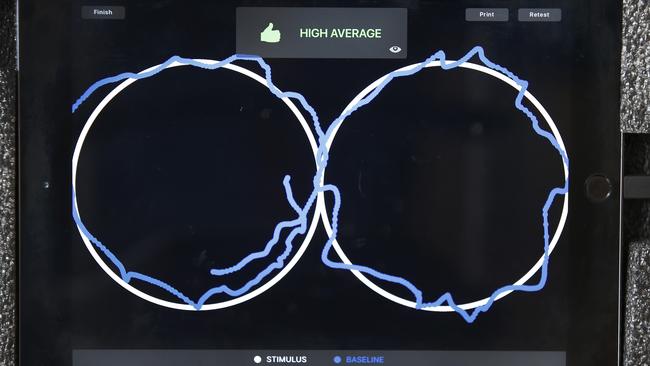Junior footballers given brain scans to combat concussion
Victoria’s biggest junior footy league will implement a revolutionary concussion test that will keep its players safe like never before.

Victoria
Don't miss out on the headlines from Victoria. Followed categories will be added to My News.
Thousands of junior footballers will have their brains scanned in a new bid to stamp out concussion and serious head injuries.
Victoria’s biggest junior footy league will roll out the most comprehensive concussion management in Australian children’s sport, with players as young as seven given digital brain activity tests.
Yarra Junior Football League will this season enforce strict new concussion protocols, with injury data for more than 10,600 players collected and analysed.
Qualified medics will attend all matches between more than 510 teams and report every head knock for investigation.
Boys and girls from under 8s to under 18s will be offered a 10-second “EyeGuide” test to evaluate the severity of a head injury after an incident on the field.
The test generates “objective data” to help parents make an informed “return-to-play” decision for their child, taking away the guesswork out of when it is safe to get back on the field.


Concussion expert Professor Alan Pearce — who led the research and drafted the guidelines — said it was a “progressive and positive duty of care’’.
“It’s all about having reliable, objective markers of recovery rather than hoping that the player is honest,’’ he said.
League chief executive Tim Murray said it was the first junior football competition in Australia to adopt the technology to protect players.
“The measurement of the brain function through eye movement is a really important technology (for) managing head injury and concussion where it occurs,’’ he said.
“This tool gives us a way to objectively assess for concussion rather than a subjective tool such as moving a finger across the face of a player.’’
The new rules have been driven by research which found head injuries were the most common ailment in the competition.
Junior players will begin having “baseline’’ brain scans this week, with the new technology and rules in place for the start of the season which begins on Sunday.
Players suffering a headknock during play will have their brains checked for abnormal activity compared to their baseline reading.
“This is a really big step in a journey of about three years and the best thing is it’s pervasive, it’s available now for free for all parents,’’ Mr Murray said.
“And we are going to do more and more as we learn about the injury profile of players.’’
The EyeGuide test, which has caught the attention of AFL, NRL, World Rugby and suburban footy clubs, captures 1200 data points to analyse eye movement and an algorithm generates data to gauge brain activity.
It can be administered by medical professionals or parents in amateur sports with minimal training.


Professor Pearce, Associate Professor in Allied Health at La Trobe University, said it was likely to be adopted by other junior competitions if successful.
“I think it’s always the case associations will look at each other and someone will step up to the plate and others will follow,’’ he said.
“Anything that can help the doctor diagnose more confidently and also give a prognosis of their recovery more confidently has got to be a good thing.”
He said it could be particularly useful in junior sport, with younger people taking longer to recover from concussion and not as effective in reporting their symptoms.
Players will still be urged to follow doctor’s advice before returning to competition, with the new technology helping guide the decision.
The new rules have been driven by research from the 2019 Yarra Junior’s season which found one child per team on average suffered a head knock per season.
Previous studies from elite competitions found each team reported a concussion every three games, or eight per season.
The YJFL study found there were 12.28 injuries per 1000 player hours.
More Coverage
Originally published as Junior footballers given brain scans to combat concussion




